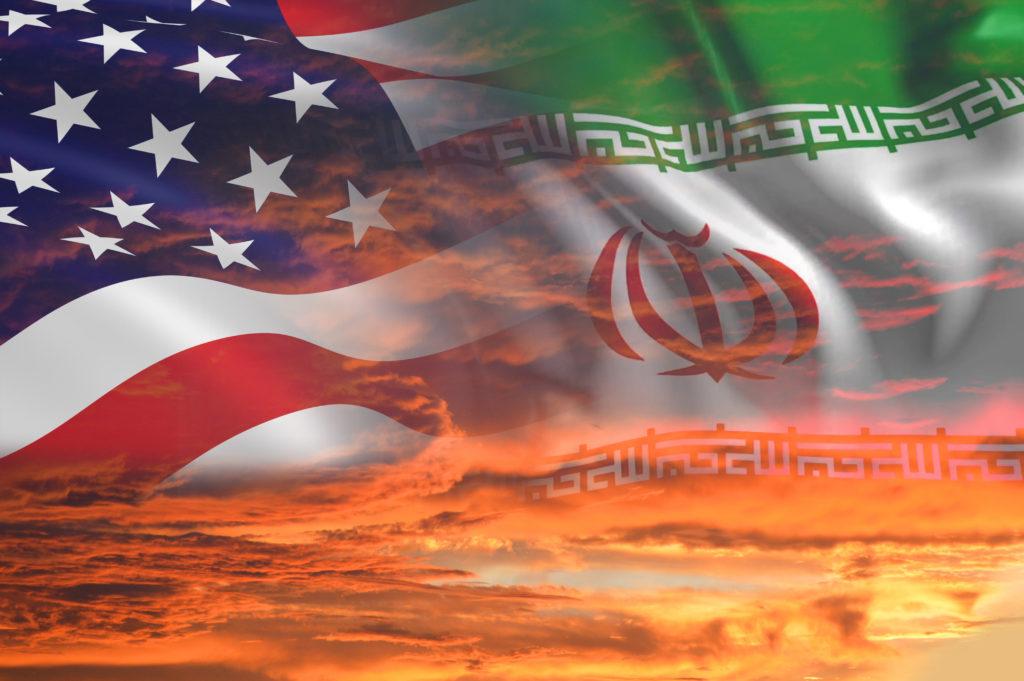US sanctioning of Iraqi militia leader highlights Iran’s role in deadly protests

USA United States of America and Iran relations / iran us war with flags on stormy cloudy orange sky background
Originally published by Jewish News Syndicate
The United States sanctioned Iraqi Popular Mobilization Committee chairman and former Iraqi National Security Advisor Falih Al-Fayyadh on Jan. 8 for his alleged connection to grave human-rights abuses. In a statement, the U.S. Department of the Treasury disclosed that throughout the October 2019 protests that swept Iraq, “Iran-aligned elements of the PMC attacked civilians demonstrating against corruption, unemployment, economic stagnation and Iranian interference in Iraq’s domestic affairs.”
According to the Treasury Department’s designation, Al-Fayyadh was involved with a “crisis cell” made up mostly of Popular Mobilization Forces (PMF) militia leaders heavily supported by Iran’s Islamic Revolutionary Guards Corps-Quds Force (IRGC-QF). The Iraqi Popular Mobilization Committee (PMC) was created under Iraqi legislation to oversee the actions of individual PMF units. Al-Fayyadh was the chairman of the PMC during the onset of the 2019 protests that led to the deaths of more than 500 civilians.
PMF umbrella groups were initially essential to early efforts to counter the self-proclaimed Islamic State in 2014. In response to the rise of the Islamic State, the highest Shia cleric in Iraq, Ayatollah Ali al-Sistani, issued a fatwa calling upon Iraqis to volunteer to take up arms against advancing Islamic State militias. While the release of the fatwa did lead to the formation of some new militias, it also enabled pre-existing Iranian-supported groups to escalate their activities overtly and with praise. Although the PMF is not a monolith Shia militia, prominent sub-groups in Iraq abide by the agenda of Iran and the IRGC, including Kataib Hezbollah, the Badr Organization and Asaib Ahl al-Haq.
The Iranian-supported PMF militias gained widespread approval as Islamic State began to lose power. The leaders of these militias took advantage of this temporary public support by creating political wings and introducing their own candidates to the Iraqi Council of Representatives. Iran was ultimately able to gain political influence in Iraq when PMF-led parties became the largest in the parliament.
- B-21 Raider bomber only has 1 enemy (not Russia or China) - July 23, 2024
- How the B-52 bomber could fly for 100 years - July 22, 2024
- China’s subs can track Navy aircraft carriers to sink them - July 19, 2024
